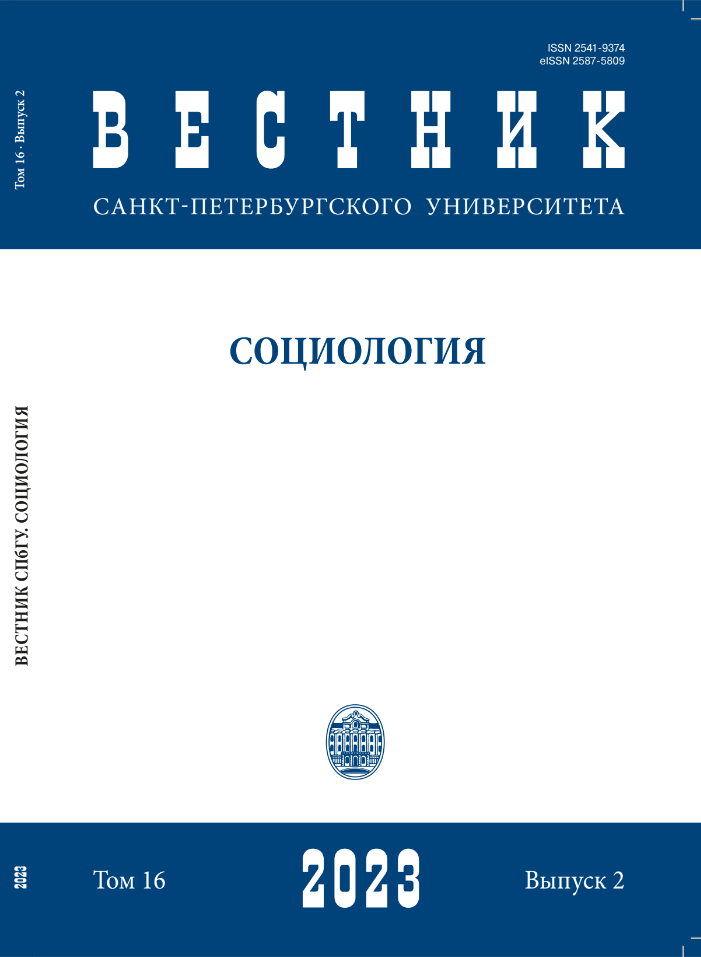The role of online visual images in the everyday life of the older
DOI:
https://doi.org/10.21638/spbu12.2023.202Abstract
The article is devoted to the analysis of the features of the creation and communication of older people through photographs and visual content in social networks. Based on the “objectcentric” approach proposed by B.Latour, the article analyzes the mechanisms of communication of older people through the creation of memories in visual images in social networks, as well as mechanisms for overcoming loneliness by them. The empirical basis of the study is biographical interviews with older people from St. Petersburg and the Leningrad region (N = 30) in which they talked about their experiences and the meanings of visual images and photographs through which communication and interaction with other users of the social network takes place and which allowed them to minimize the state of loneliness. Also, the study used the method of digital ethnography, during which the communication of older people and the content of visual content was examined, a total of 1000 photos and posts were
analyzed. The study revealed that visual images of older people in social networks construct a single whole necessary for the invidualization of the personality of an older person. Visual images can be used by older people as a means of achieving community, or they can act as a self-defense mechanism and a necessary fulcrum when, with the help of visual images, people seek to minimize and stop the negative consequences of loneliness and age-related changes. Also, it is the communication that takes place through visual images in social networks that contributes to the creation of a therapeutic effect for the older and the expansion of the circle of communication
Keywords:
older people, visual images, everyday life of older people, social networks, separate, separate residence of older people
Downloads
References
Downloads
Published
How to Cite
Issue
Section
License
Articles of "Vestnik of Saint Petersburg University. Sociology" are open access distributed under the terms of the License Agreement with Saint Petersburg State University, which permits to the authors unrestricted distribution and self-archiving free of charge.




